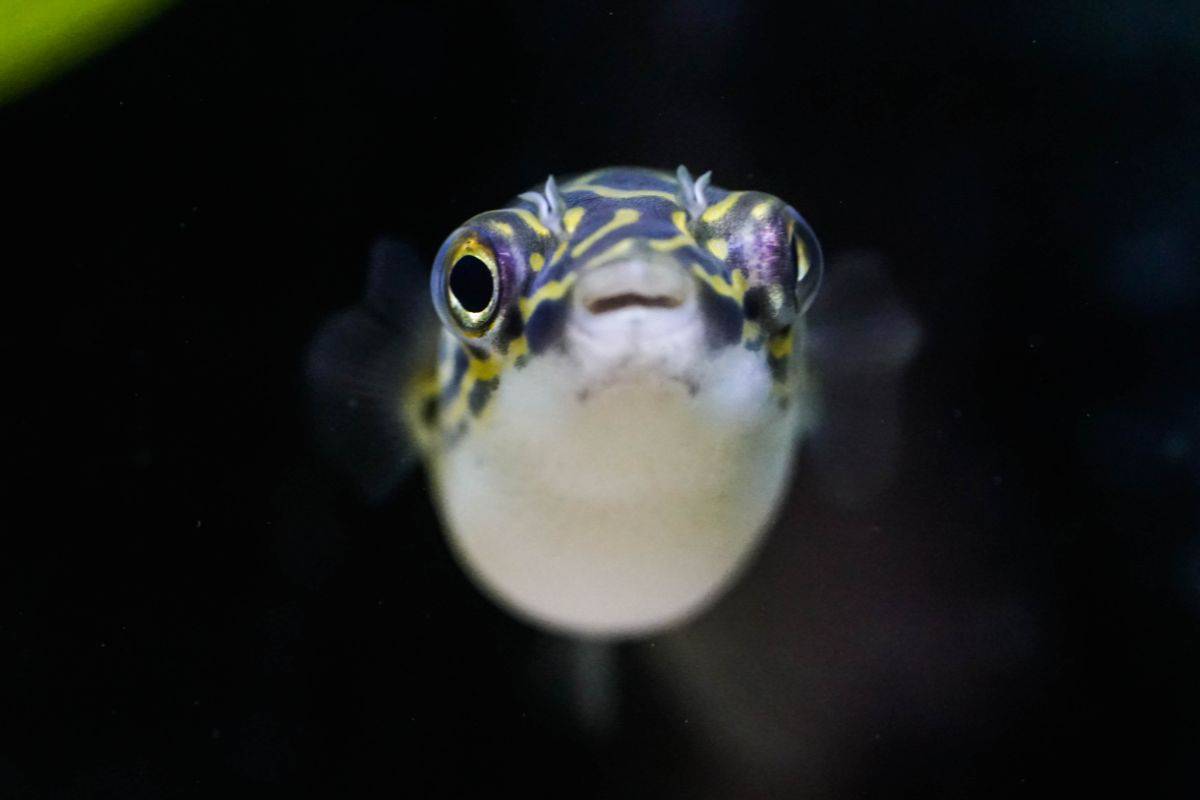Fish are not only lovely pets, but a very integral and useful part of the Earth’s ecosystem. Usually underestimated or known as ‘boring’, fish actually have abilities that most people don’t know about.
Some species of fish have incredible eyesight or sense of smell and taste. Some have evolved so that they can live in the darkest depths of the ocean without any eyes at all!
Fish are not quite the commonplace household pets that we know and this article will explore not only if fish can recognise their owners, but how extraordinary fish really are!
The Facts About Fish.
Fish are classed as aquatic vertebrates, their combination of gills, fins and the fact that they live only in the water makes them different from nearly all other animals on the planet.
Fish will spend all of their lives in water and are cold blooded, with the exception of Tuna and the Mackerel shark.
Scientists have estimated that there are around 38,000 different species of fish around the world and they range incredibly in size.
The largest fish is a whale shark, which comes in at a whopping 51ft long! The smallest fish known is just 8mm and is called a Stout Infantfish.
Most fish have a skeleton made of bone but some of them, like sharks for instance, have a skeleton made of cartilage instead.
How Well Can Fish Actually See?
Vision is an incredibly important sensory system in nearly all species of fish. Their eyes are similar to that of birds and mammals but have a much more spherical lens.
Most species of fish actually have full colour vision and some can even see ultraviolet light or polarised light.
While fish are not typically given credit for being especially smart or for possessing a good memory. They don’t have a large brain capacity and most of their time they spend searching for food.
But perhaps we have underestimated the IQ of fish. Studies conducted with captive blind Mexican cave fish reveal that these fish can identify changes made to the arrangement of objects in their aquarium.
Fish seem to have a sense similar to bats that gives them the ability to detect obstacles in their path. Further, the fish make a mental map of their surroundings and commit it to memory for future use.
So no need to put off a Saturday afternoon of renovating the home aquarium because you fear the fish will get confused, they will learn their way around quicker than you would.
You may want to have a look at an article I wrote about how far fish can see.
Fish Have Incredible Abilities.
Some fish have incredible abilities, developed over a millennia of evolution and growth through the species.
For example, Archerfish, which are found in brackish waters around Southeast Asia, have the ability to hunt for insects along the river banks by forcefully ejecting a stream of water from their mouth, causing the insect to fall to the water and be eaten.
This ability to use their mouth like a water pistol is the means by which trained archerfish were able to make selections between two images of human faces.
The trained archerfish were able to correctly select the familiar face 81% of the time. The scientists then made the images more consistent by levelling the brightness and colour of the images and the archerfish improved their score to 86%.
Collective studies indicate that being as smart as a fish is a pretty nice compliment.
What’s interesting is that while we normally give credit to mammals for their ability to recognize their owners, land animals have the added benefit of detecting scent and hearing vocal sounds, factors that do not play a part in these studies.
We know that fish can sense time by swimming around the top of the tank close to feeding and they may perform for their keepers as they associate a human presence with food.
The fact that fish can discern between different faces raises the question of why they have this ability.
Do Fish Recognise Their Owner?

This is a very interesting question that has intrigued many scientists and prompted a study investigating whether fish of the same species could recognize fellow individuals.
The study evaluated the ability of Ambon damselfish to identify a fish they have seen previously by swimming up to a computer image with a choice of two damselfish.
The study found that ultraviolet facial patterns on the damselfish were key to the test subjects’ ability to identify individuals.
These UV patterns, which are not able to be detected by humans with the unaided eye, act like name tags for the Ambon damselfish.
The study went further by presenting manipulated facial images and the damselfish were still able to recognize the familiar face.
So if Jack and Jill have been tank-mates for some time and Jack dies, prompting you to replace him with Chad thinking Jill will never notice, think again.
While mastering who’s who inside of the aquarium makes sense, what is most amazing is the ability of fish to see what’s happening outside of the aquarium.
This video is super cute!! This little guy definitely recognises his owner!
Frequently Asked Questions.
What Makes Fish Unique From Other Animals?
What distinguishes fish from the other animal classes? Fish are a class of aquatic vertebrates. The combination of gills, fins and the fact that they live only in the water make fish different from all other animals.
Are Fish Cold Blooded?
Yes! Fish are cold-blooded vertebrates that live in water, breathe with gills, and have fins rather than legs. Cold-blooded means their surrounding environment largely regulates their body temperature.
Do Fish Have Senses, Like Taste, Touch, Smell etc…?
Fish make use of a variety of sensory organs. Fish have inner ears for equilibrium and hearing.
A lateral line, which is a series of fluid-filled canals extending along the body, is used by many fish to sense vibrations in the water; they can listen for prey, or predators.
Fish have a sense of taste that might be used for final acceptance or rejection of food. The sense of smell is usually well-developed and helps in locating prey.
Some fish can even produce a low-voltage electrical current around their body. When prey disturbs this current the fish can sense it.


